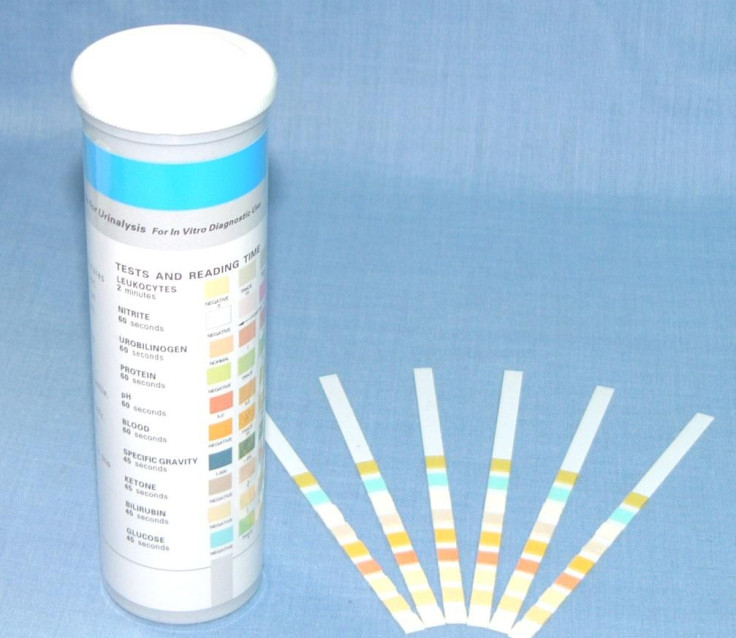FDA Investigates Urine Analyzing iPhone App: uChek Urinalysis Called An ‘Unapproved Medical Device’ [Video]

In a first for the newly burgeoning field of medical and health related apps for mobile devices, the U.S. Food and Drug Administration (FDA) has taken issue with Biosense Technologies Private Ltd.'s uChek system, an iPhone app released this past February. The app uses your cell phone as an automatic reader for test strips sold by other companies that test various parameters of urine. The issue the FDA takes with the application is that once the analysis of medical information switches from human analysis to a computer program reading the raw information and spitting out a result, it is considered a medical device and needs to go through the FDA section 201(h) approval process. This is the first time an app has come under scrutiny from the FDA.
The letter from the FDA explained why this app is considred a "medical device":
Please note that though the types of urinalysis dipsticks you reference for use with your application are cleared, they are only cleared when interpreted by direct visual reading. Since your app allows a mobile phone to analyze the dipsticks, the phone and device as a whole functions as an automated strip reader. When these dipsticks are read by an automated strip reader, the dipsticks require new clearance as part of the test system. Therefore, any company intending to promote their device for use in analyzing, reading, and/or interpreting these dipsticks need to obtain clearance for the entire urinalysis test system (i.e., the strip reader and the test strips, as used together).
The app takes a series of pictures of test strips which react with various chemicals in urine to give a multitude of information by changing color. The strips that the system is compatible with are made by Siemens Multistix SG10, Siemens Multistix SG, Siemens Uristix, Bayer Diastix, and Bayer Keto-Diastix. When the app has analyzed the urine sample it gives a pretty round idea of what the levels of certain health related numbers, including:
- glucose
- urobilinogen
- pH
- ketone
- blood
- protein
- bilirubin
- nitrite
- leukocyte
- specific gravity
"When these dipsticks are read by an automated strip reader, the dipsticks require new clearance as part of the test system. Therefore, any company intending to promote their device for use in analyzing, reading, and/or interpreting these dipsticks need to obtain clearance for the entire urinalysis test system (i.e., the strip reader and the test strips, as used together)" said FDA Deputy Director James Woods. According to Bloomberg the dvelopers of the app hope to work closely with the FDA to better work out what approval it needs for its $40 app.
"We intend to work very closely with the U.S. FDA over the coming months to ensure that we continue to deliver accurate, affordable and convenient diagnostics across the world," Abhishek Sen, co-founder of Thane, India-based Biosense, wrote in an e-mail to Bloomberg.
The letter that the FDA sent to Biosense contained information about another company, Acon Laboratories Inc., which had previously submitted an application for their urine analysis application. The company has 30 days to seek approval for its "device" and if the company believes that it doesn't require approval, it must prove its case to the FDA approval board.
Earlier this year the FDA announced that it was going to begin regulating the growing field of medical apps. This is currently an unregulated sector of the medical device field and the only approval process is that which takes place to bring the program to the app store. That approval process is performed by Apple. Some believe that if the FDA forces all potential "medical device" apps to undergo clinical trials, the policy could crush the newly forming field of medical applications for personal and professional medical use.
Apps that may come under scrutiny from the FDA in the near future include ones currently on the market that perform extremely important medical tasks — tasks where a patient's life could be at risk if the app was innacurate or malfunctioned. Some of the types of apps that may breach medical device approval rules include:
- electrocardiogram (ECG) apps
- a mobile medical app that controls the delivery of insulin
- stethoscope apps
- an app that takes patient-specific information and provides a clinician with radiation dosage calculations
- mobile medical apps that allow doctors to view X-rays or other imaging on smart phones and tablets



























